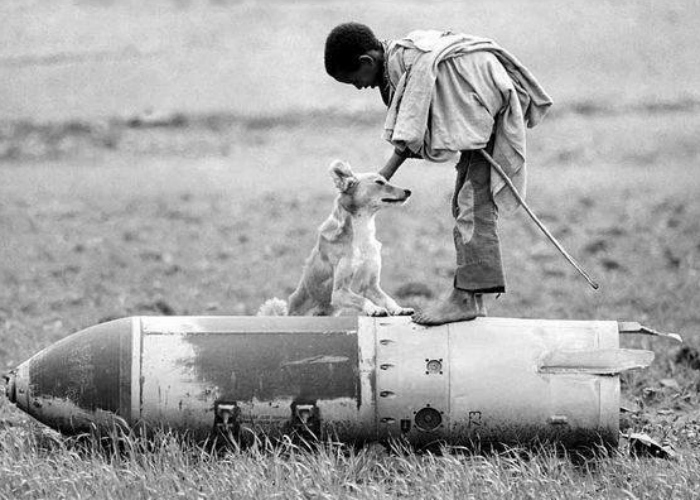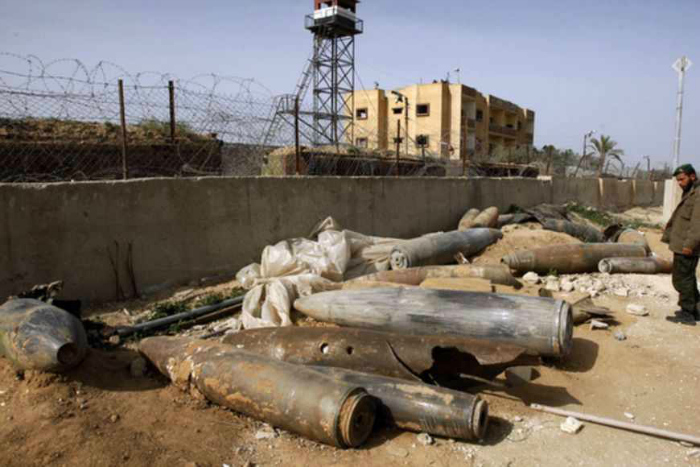What Are Exoplanets And How NASA Detects Life Beyond Our Solar System
Bharti Airtel Set To Acquire Telenor India Within This Year
Google Celebrates NASA’s Discovery Of Seven Earth-Like Planets With An Animated Doodle
Some Home Remedies That Might Sound Bizarre But Actually Work Like A Charm
Akshay Kumar Feels He Has Made Enough Money, Now Wants To Focus On Content & Characters
Delhi ATM Dispenses Fake Rs 2000 Notes From ‘Childrens Bank of India’ With ‘Churan Lable’
Adolf Hitler’s Personal Telephone During World War II Is Up For Auction In The US
From Salman Khan To Rekha, Neil Nitin Mukesh’s Wedding Reception Was Quite A Starry Affair
Lakhs Of Jabalpur Residents In Danger. Unexploded Bombs And Tons Of Rejected Russian RDX Is Stored Under The City
Thousands of unexploded and rejected bombs from 1999 Kargil war lie buried in the premises of Ordnance Factory Khamaria (OFK), located in a densely populated area in Jabalpur town in Madhya Pradesh, posing a huge security risk for the town which also happens to be quake-prone. The danger to OFK can be huge given reports of sporadic explosions on the premises in the last few years: The latest incident occurred as recent as Friday night when two employees were injured in a minor explosion. Insiders claim over a lakh of 84mm mortars, L70 and BMP2 shells are stockpiled underground at OFK. Their detonators have corroded to the point where it is dangerous to defuse them, sources said. Besides, there are chances of spontaneous combustion due to rapid deterioration of the duds. Magazine F12, where the Kargil explosives are stored, is out of bounds for employees as it was recently sealed by OFK authorities. Among the explosives that are stored in F12 are bombs, mortars, improvised explosive devices (IEDs), artillery shells, rockets, torpedoes and grenades. "We have raised the issue with authorities several times, but nobody is willing to take the risk. The dump at OFK has enough ammunition to go to war with any country," said Arun Dubey, member, joint consultation machinery (JCM) at Khamaria, which is under the Ministry of Defence.
More fear about RDX
What's also ringing alarm bells at OFK is the stock of 4000-kg RDX supplied by Russian state arms export agency M/s Rosoboronexport in 2003. "Russian RDX worth crores had failed quality check and could not be used. There were several communications between OFK and the Russian agency on the issue. In 2014, the agency replaced the stock without taking back the inferior RDX," claimed an OFK employee.
Besides Kargil explosives, a stockpile of rejected bombs is also awaiting disposal at the ordnance factory, which was hastily set up by the British in 1942 at the peak of World War II to feed Allied forces in Africa and Eastern Europe.
There was a series of communications between OFK and higher authorities in the ministry of defence over transportation and disposal of these explosives, but nothing moved, sources said.
No one knows exact amount of explosives stored.
"Nobody knows the exact quantum of explosives stored. General managers are posted and transferred. The bosses concentrate on their production targets, not disposal," said Dubey. However, he added that OKF ensures safety protocols to avert accidents.
There are several bomb storage magazines across 7000-acre ordnance factory, most of them being from the British era. The magazines also contain raw material for assembly of L77, VMP 2, 551, SSAPDS 125mm, 36mm GHASA, 23mm Silka and Adan bombs.
While OFK general manager Sanjeev Gupta is on tour, assistant GM AK Thakur refused to comment. "I have recently joined and let me settle down," he said.
General secretary of Intuc unit of OFK K B S Chouhan said there is no policy to dispose of these explosives. "Disposal should be planned to avert accidents. Earlier, OFK was a forested area but is now an urban cluster. High-intensity bombs cannot be defused here," he said.






